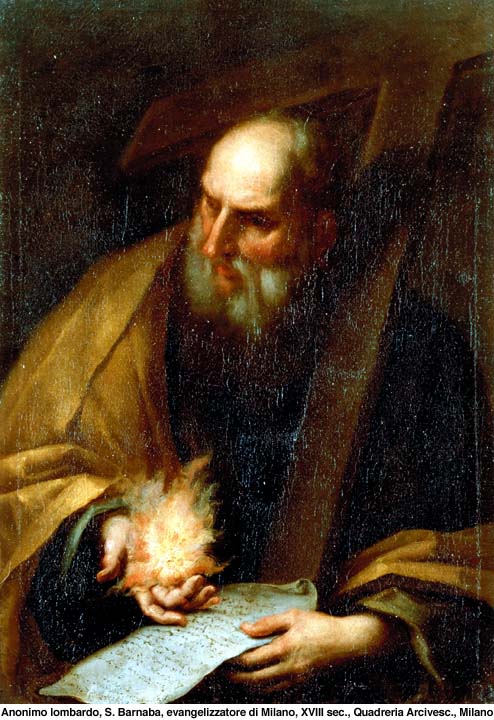My church community prides itself – and rightly so – on welcoming someone who embezzled a great deal of money from them to remain and continue to be part of them after the theft came to light. He was remorseful, and they were forgiving. They learned how to let go – of resentment, of anger, and even, I believe, of the money they had lost – in the service of love. They also learned that people who make big mistakes and own up to them often become deeply grounded in God. This all happened before my time, but it is a story that defines my church as a Christian body even now. No one is expendable.
In our reading from the Book of Acts for the Feast Day of St. Barnabas, Paul, the tormentor, persecutor of the church in Jerusalem, has turned over a new leaf and become a disciple. Now he wants a place among the followers of Jesus, but everybody is too afraid of him to have anything to do with him. He is isolated and shunned.
Barnabas, whose name means “Son of Encouragement”, takes up Paul’s cause. Recounting the story of Paul’s encounter with Jesus on the road to Damascus, he invites Christ’s disciples to see this person they have hated with different eyes. He asks them to take a risk and believe Paul has truly changed, has come to follow Jesus. Because Barnabas is so very convincing, they do.
This must have been almost unbearable for them. People scattered and brutalized by Paul and his friends, those who remembered Paul standing and guarding coats while their dear Stephen was stoned to death – how did these folk manage to allow any room at all for him to prove himself? And yet they did. Forgiveness and love trumped everything else.
How do we listen well so we can hear the distress and the willingness to change in the heart of the one who has hurt us? How do we let go of resentment, anger and even our “stuff” to become the New Jerusalem Jesus longed to usher into the world?
Perhaps we can emulate Barnabas. Perhaps he had a huge, generous heart on top of being willing to really hear out the people who came to him. He probably always thought the best of everyone.
We need to think the best of one another, too – live in hope for one another. God constantly in-forms each one of us in mysterious ways. Sometimes like water wearing down a stone over time, sometimes with immediacy and drama, like a bolt of fire from the heavens, God moves us along to transformation.
When we believe in this transformation, it changes us for the better. Like my church community discovered, it matures us in our lives together as people of God. It tells us who we really are.
Laurie Gudim is a writer and religious iconographer who lives in Fort Collins, CO. You can view some of her work at Everyday Mysteries.
Image: By Anonimo Lombardo [Public domain], via Wikimedia Commons

